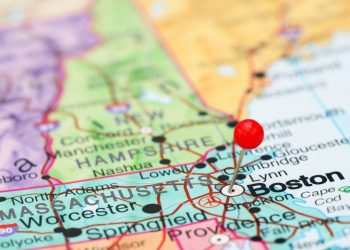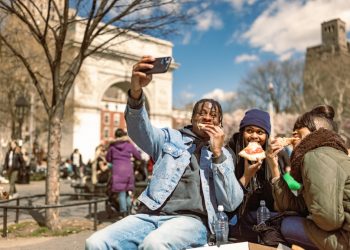 By Ross Werland
By Ross Werland
RISMEDIA, August 11, 2008-(MCT)-If you’re heading to Beijing to catch the Olympic Games, you also might want to stop in at a tea house to get your ears cleaned. It’s a routine service in the tea houses, for some reason.
That’s one of the things the Travel Channel’s Samantha Brown found while filming “Passport to China” in that country for a month last September. The three-part series debuted last week in time for the start of the Games on Friday.
Already on to other subjects, Brown was in Chicago to film a segment on Chicago for “Passport to Great Weekends.” While here, she sat down to offer her tips on navigating Chinese society.
First, her impressions: “What’s great about China and what’s shocking about China is that it’s the complete opposite of what we know. We’re of Europe, we’re of Latin America,” she said of dominant American cultural roots, explaining how even travel to those places can feel familiar. China is vastly different. “You’ve got that culture shock going for you. There’s that honeymoon period of just being, ‘Wow, this is amazing.’ Then it sets in that you can’t get things done.”
TRYING TO BREATHE
This is the subject about which Brown is most adamant. Unless the Chinese pull off some miracle to dissipate air pollution in Beijing before the Games, she thinks there may be trouble for the athletes trying to compete at peak efficiency and certainly for any visitor who has lung problems.
“Pollution is really bad,” she said. “You feel sick. Your ears start ringing. I have absolutely no lung issues, and it was hard. I don’t know what the athletes are going to do.”
Visitors should consider this issue seriously, she said, suggesting, “I would consult your doctor” before going to Beijing.
COMMUNICATING
If you’re not with a tour group and don’t speak Chinese, hire a guide/interpreter if going outside Beijing, the capital. “There’s no way you can do it without an interpreter,” she said. “I just can’t even imagine.”
Though doing a lot of “charades” to make her wishes known, Brown said, body language is just as important as spoken language, and the chief body communicator is the smile. “In China, there’s a tradition called ‘losing face.’ So it’s very important that you never lose your composure and you never shed any bad light on the person you’re dealing with,” she said. “So if you have an issue with someone, you always smile, you never raise your voice, and you try to resolve it. Impatience in China is seen as one of the most negative traits you can have.”
Before leaving your hotel for a destination, ask the concierge or someone at the front desk to write down your destination in Chinese. The standard-issue American has little hope of communicating this information to a cabdriver, so if you can provide the name in Chinese, all the better. One caveat, according to Brown: Sometimes even that might not be enough, because so many cabdrivers have moved in from the provinces and may be unfamiliar with the city, so a backup plan is to have your hotel and destination circled on a good map.
GETTING AROUND
“Pack comfortable shoes,” Brown said, “because you’ll be walking a lot.” You also might be using those shoes to get the heck out of the way of drivers when crossing a street, which may well have five lanes of traffic. “People don’t stop for you. They have crosswalks, but cars don’t adhere to them at all. It’s just a suggestion. … Get behind someone who’s Chinese, who knows what they’re doing, and just ride on their draft like Lance Armstrong.”
When not walking, you may well be cabbing it. This is a good opportunity to practice your smile and patience. “Beijing is a tough city,” Brown said. “It’s so poorly serviced with public transportation. I found Beijing really frustrating, because you would need to get into a cab to go anywhere, but the traffic was so bad at all times, across town would be an hour trip. You get in a cab, and you just wait.” To hold down on travel times in the city, she suggested staying in a central place, so you don’t have to wade through the whole traffic mess each time.
In going city to city, take a train. “I thought that was fantastic,” Brown said. “Some people say that the airport system in China is only OK. So if you can take the train, you should. One, it’s cheaper, plus you get to see the landscape. It’s really wonderful to roll through those towns.”
For anyone who feels the least bit of fear about traveling in a foreign country, consider a tour group if it’s the difference between going and staying home. But if you are a maverick when it comes to travel, “Beijing is probably where you could wing it, because a lot of people are speaking English there, and everything is written in English. I remember walking into what I would consider was off the beaten path, and there was English there too.”
FOOD
You’re going to be trying a lot of things you’re not used to. Centipedes, anyone? “I always bring a jar of peanut butter wherever I go. … And I brought Cheerios, because I knew I was going to have (euphemism alert!) traveler’s dilemma. There was going to be some stomach issue. So what’s the food you want to make you feel better? I brought peanut butter and I brought Cheerios. You have to think about what food’s going to bring you back” comfort-wise.
SHOPPING
When shopping in the United States, it’s not unusual to get the salesclerk shakedown when you walk in. The clerk asks if there’s anything he can help you with, but you know he is really more interested in knowing whether you’re there to steal something. Well, there’s a Chinese version, but Brown said it really is about service, not crime.
“I was able to keep my composure about everything but this: When you walk into a store in China, a real, bona-fide store, a clerk will just follow you the entire time. She’ll be in your blind spot. You’re just looking, and she’ll be right here. As it was explained to me, this is just good service. It drove me crazy. I’d try to lose them. Finally they would tire; they understood. … Don’t take it personally, but it drives you nuts. It’s the one thing I couldn’t be polite about.”
“The commercialism is so in your face there. It’s not my idea of communism. Whatever price they give you, you want to knock it down at least a third. I always have a problem with this, but they expect you to bargain. It’s part of their culture. You never just walk away with that first price. And then again, always smile. Be patient. Be polite.” (U.S. travel guides encourage tourists to bargain even in stores, though supermarkets and some malls with clearly marked prices are an exception.)
YOU’VE GOT TO BE KIDDING
“This was one of my biggest disappointments, and this happened to me a couple of times: I’d be in a tea house, not a touristy house at all, and I was given Lipton tea in a bag. I love tea. I thought, ‘You have all the tea in China, and you’re giving me Lipton?'”
HOW TO BE A TOURIST
“Everything is so overwhelming. It’s either the oldest in the world or the largest in the world. In that case, I think it’s really important to spend time doing the everyday things. That’s equally fascinating. Obviously you don’t want to miss the Great Wall of China _ it really delivers _ the Forbidden Palace, Tiananmen Square. But make sure you go to one of their parks. You see this incredible life that they have. They’ll be practicing tai chi. I’m talking about 50 women all at the same time.
“The tea houses are where they’re enjoying life. Just be a part of that. You can really sense how this culture, which is thousands upon thousands of years old, has evolved to what they are today.”
THE TRULY WEIRD
The ear cleaners. For some reason, part of that evolution of society means having your ears cleaned at the tea house. These ear cleaners, certified by the state like, say, a chiropractor, ply their trade while you’re enjoying your Lipton tea.
“They stick this long skewer in your ear, and you’ve never sat so still in your life,” she said. “I thought it was fantastic, but not for everyone.”
© 2008, Chicago Tribune.
Distributed by McClatchy-Tribune Information Services.










